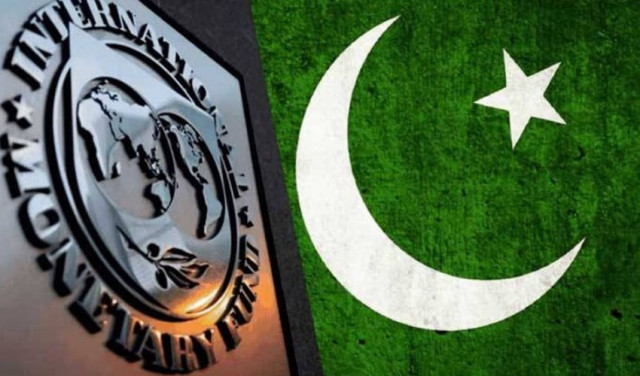Islamabad:
The International Monetary Fund has asked Pakistan to spend money on the projects of parliamentarians through regular approval processes by abandoning special treatment and again urged to avoid budget adjustments in the middle of the year without the prior approval of Parliament.
The IMF has also emphasized the importance of a budget strategy document by recommending its publication six months before the presentation of the budget in a movement that is considered contrary to the practice of the Ministry of Finance not to publish the strategy documents in a timely manner.
To improve transparency, efficiency and affordability of the Public Sector Development Program (PSDP), it is necessary to integrate the projects of parliamentarians in the PSDP process, the IMF declared in its report on the evaluation of the diagnosis of governance and corruption.
The Government will officially publish the report at the end of this month.
Unlike the approval of any project by the Central Development Work Party or the Executive Committee of the National Economic Council, the parliamentary schemes are approved by a program of SDG management achievements without much scrutiny. The Vice Prime Minister Ishaq Dar presides over the Steering Committee.
These are small -scale community welfare schemes, which are also found in the domain of local governments, except for the provision of electricity and gas.
In the last fiscal year, the Government had spent at least RS61 billion in the schemes of the parliamentarians and RS70 billion have been assigned for the current fiscal year for these small -scale projects. There have also been voices within the country against spending in these schemes outside PSDP, which can cause waste and less expense on the ground than the approved budgets.
The IMF has also recommended limiting PSDP assignments for new projects to only 10% of total assignments to avoid diluting the already sacred resources. There is a trend in each government to announce and approve new projects despite the fact that existing projects require more than a decade for completion due to limited resources.
The IMF has asked the Ministry of Planning to rationalize the PSDP portfolio retaining only high priority projects. Political convenience has distorted the assignments of PSDP and the federal government spends on the projects, which are in the areas that are not even the responsibility of the center.
The Government has also been executing small schemes through the PSDP and the funds assigned for these projects are also often used. The Ministry of Planning did not comment on this article.
Pakistan’s general public finance management is still weak and there is also a bit of appetite in the government to guarantee transparency and involve the cabinet and parliament in discussions prior to the budget.
The Ministry of Finance this year did not take the Budget Strategy document to the Federal Cabinet for its approval in violation of a law of the Parliament.
However, the IMF has recommended that the Ministry of Finance advance the calendar to present and publish the budget strategy document to January and include macroeconomic and fiscal indicators in these documents. The budget is presented in June.
The global lender has also recommended that the government also analyze the precision of previous macroeconomic forecasts and budget estimates after the end of the fiscal year.
The IMF, which has long been urging Islamabad to abandon the tool of complementary subsidies, again asked the government to respect the supremacy of Parliament. He has recommended that the government avoid budgetary adjustments of the middle of the year without obtaining the prior approval of Parliament. To meet unexpected expenses such as natural disasters, the IMF has recommended to maintain a contingency group for such expense.
Currently, the Government issues complementary subsidies during the course of the fiscal year and obtains the ex-post approval of the Parliament’s expenditure. Sometimes there are unforeseen expenses such as the allocation of RS5.8 billion for areas affected by the country’s floods on Tuesday.
But there has also been a practice to defer an expense at the time of budget approval to maintain the general size limited to the IMF requirement.
For example, the Ministry of Finance did not approve a subsidy for the foreign remittance scheme in the budget due to the limited space available. However, after the intervention of the Prime Minister’s office, he authorized a complementary subsidy of RS30 billion a few days ago outside the contingency expenses group.
The fiscal year has just begun and the government has already begun the process of granting complementary subsidies to several ministries.
The Economic Coordination Committee on Tuesday approved a complementary subsidy of RS250 million for the National Security Division for its strategic policy planning cell. The expenses in the creation of the cell should have made part of the regular budget approved in June.
The ECC on Tuesday, on a proposal of the Finance Division, also approved the subsidy of Person to Mercantile based on the Rast QR Code for a sum of RS3.5 billion.
In another important recommendation, the IMF has proposed to amend the law and rules of the public acquisition regulatory authority to end preferences in acquisitions for state entities and charitable organizations. He has urged the government to bring these changes destined to guarantee transparency, efficiency and responsibility in the public procurement process.




